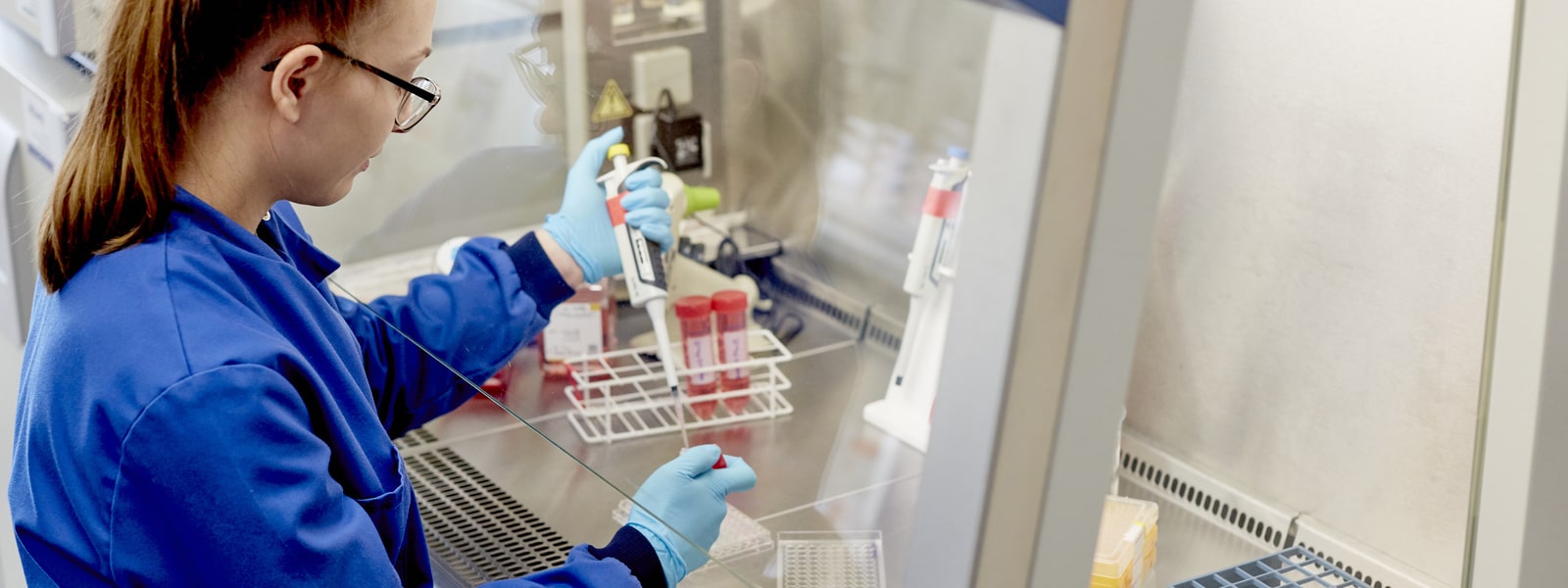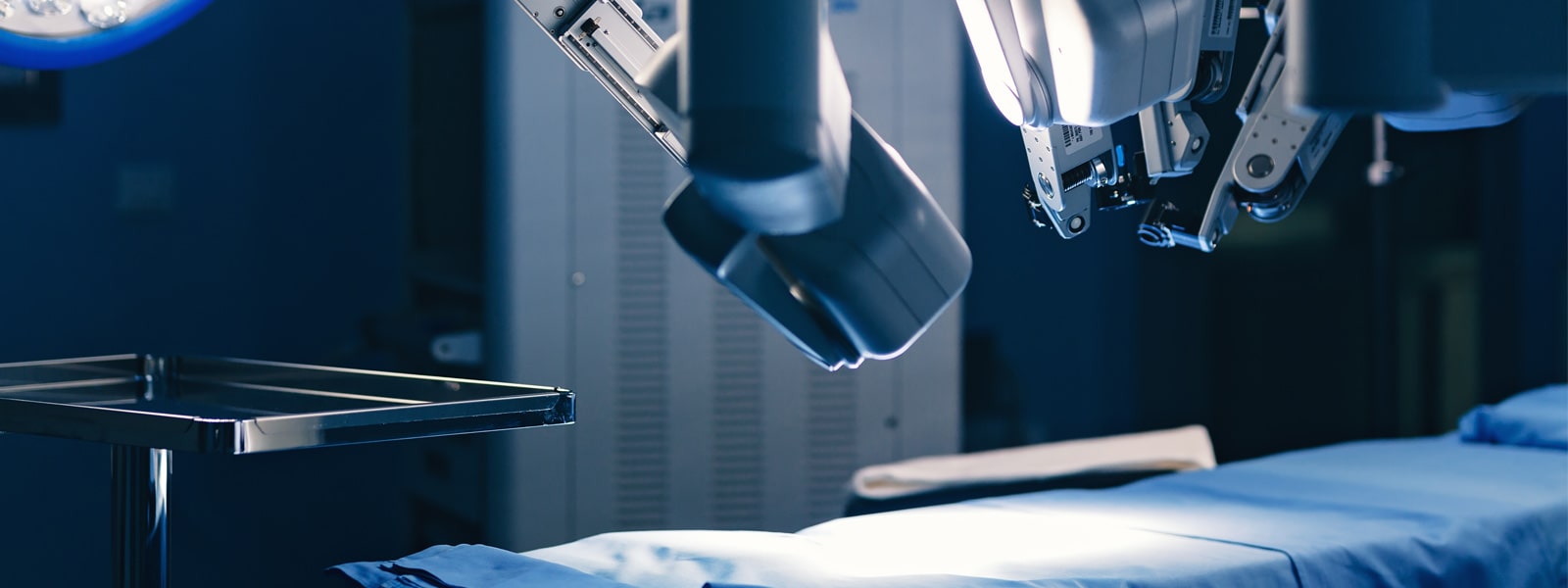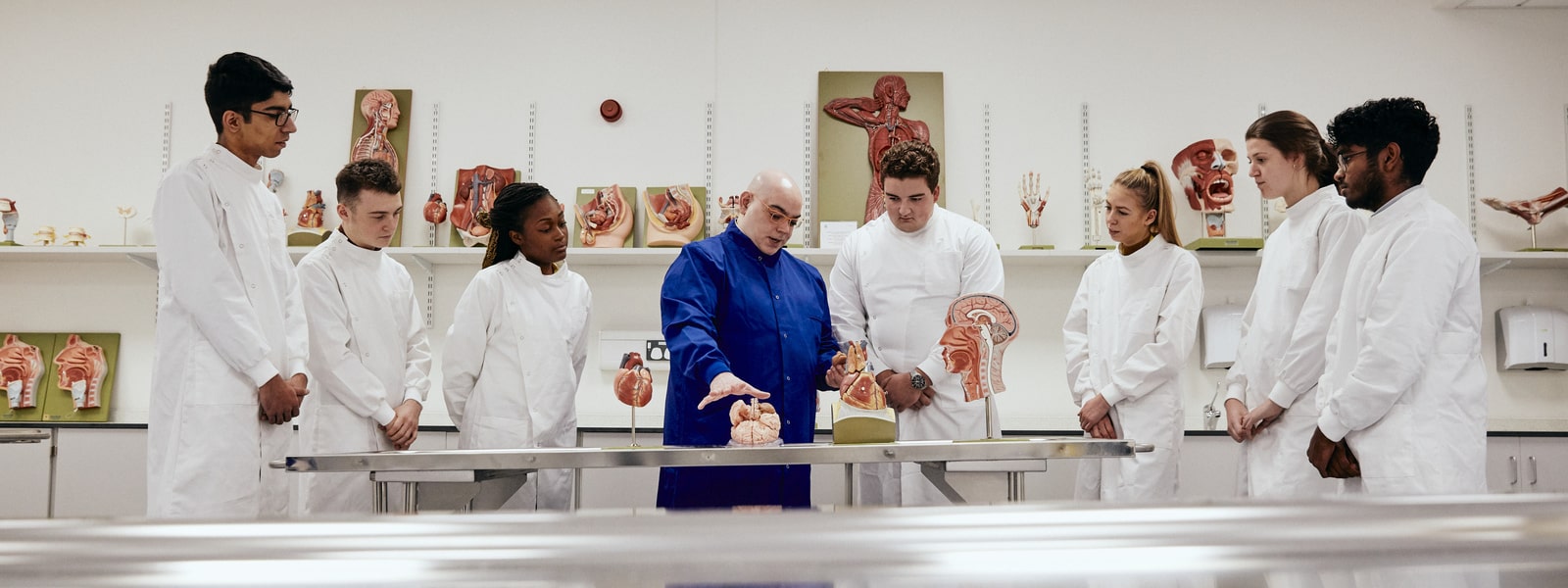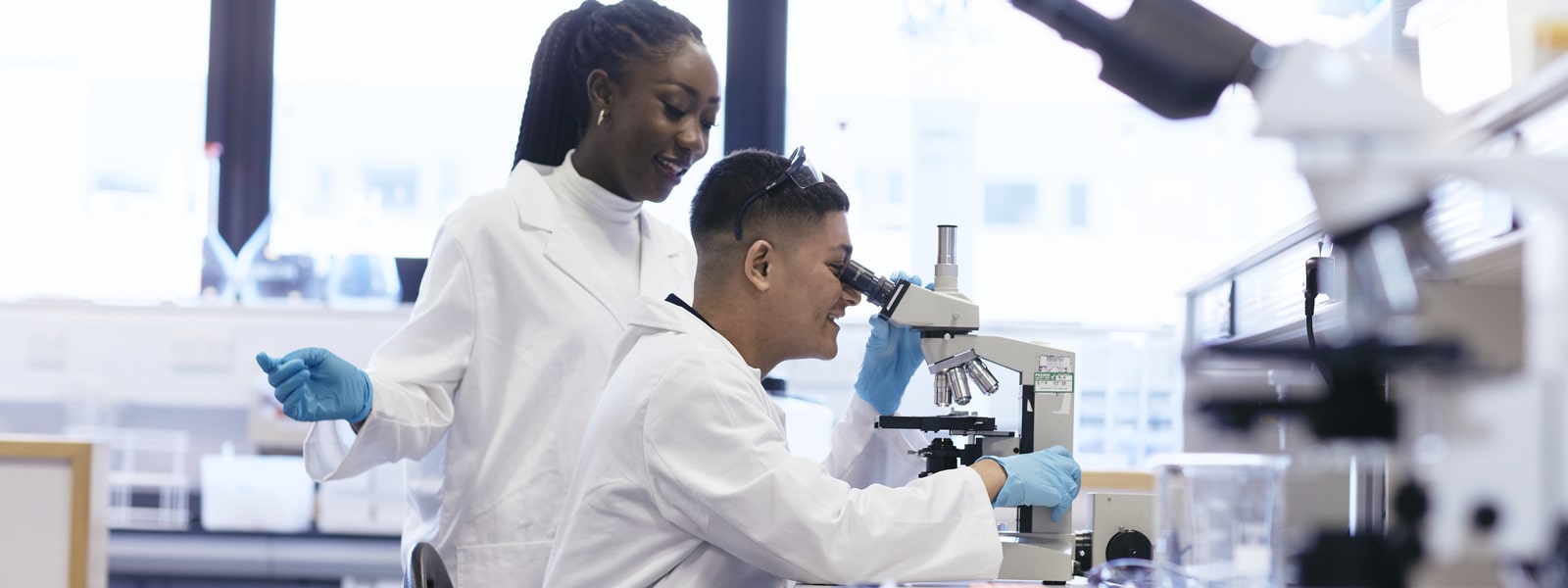Module Overview
Our understanding of human disease is constantly evolving and this increased knowledge is presenting new opportunities to better therapeutically target and treat these diseases. As such, this module will focus on investigating the latest cutting-edge treatments being used by the NHS now and into the future to treat disease, discuss the ethics associated with bringing these into practice, evaluate the successfulness and limitation of these approaches, and explore where future development is needed to fully realise their potential.
Module Overview
The blood sciences module will provide a deep understanding of this emerging, mixed-disciplinary field incorporating areas including clinical biochemistry, haematology and blood transfusion. This module will develop knowledge of the role of clinical biochemistry and immunology laboratories in the functional diagnosis and monitoring of endocrine function, allergy and autoimmunity. In addition, you will gain an understanding of the different haemopoietic systems within the body and the techniques used within NHS haematology laboratories to monitor these. A range of diagnoses that are enabled through the analysis of blood will be explored, including erythrocyte disorders, haemoglobinopathies, coagulation disorders and leukaemia. We will also discuss the role of transfusion in both treatment and management of diseases. Specific focus will be placed on the importance of blood group matching, donor selection, and blood processing/testing. Furthermore, we will also discuss immunohaematology and techniques used for detection and identification of antigens and antibodies; to enable students to evaluate adverse transfusion effects as well as the transfusion-transmitted diseases.
Module Overview
This module provides an overview of the role of cellular pathology in the diagnosis and monitoring of malignant and non-malignant diseases. This module intends to evaluate the normal and abnormal histology and ultra-structural features of human cells and tissues. The module enables students to appraise malignant and non-malignant cytology, and critically evaluate the role of multiple research and diagnostic techniques; ie. electron microscope and immunocytochemistry in pathological differential diagnosis. The module aims to enable students to understand and critically evaluate different methodologies of cancer treatment, how cancer drug resistance evolves, and investigation of the role of personalised medicine for optimum patient treatment/outcomes.
Module Overview
In this module, students undertake an independent programme of research under supervision from a member of staff. It provides students with an opportunity to demonstrate original and critical thought, as well as to build discipline-specific research and project-management skills.
A wide range of subject expertise exists within the School, and students are expected to work on a project that is relevant to their programme of study. Under the guidance of a supervisor, students will review the literature, identify a research question/aim and objectives, and design a programme of research respectively. Students will be expected to manage the project and work in a safe and ethical manner, which will include undergoing training in and engaging with obtaining relevant ethical approval and risk assessment. Students will collect and analyse data, record their activities and research methodology and results in a “lab book”/ equivalent robust means of recording.
We currently offer projects in the laboratory (wet or animal) or field, projects that involve data analysis, literature research, educational research, science communication research and market research. Students may work individually or in groups addressing similar questions, but must write up individually. The findings of the research will be written up and presented orally. The conduct and performance of the student as a research apprentice will be assessed.
Module Overview
This module will build on the knowledge and understanding of microbiology and animal disease gained previously at L2. The module aims to develop students’ understanding of the One Health approach to human and veterinary diseases, including protecting animal and human populations from infectious agents recently introduced through cross species transmission.
Module Overview
The forensic field course will give students the opportunity to experience first-hand the work of the forensic scientist within a national or international context. This may take place in a country other than the UK. Students will also familiarise themselves with the professional skills required to carry out this type of work.
Module Overview
The module provides an overview of the applications of genetics and its ethical and social considerations with an introduction to ethical philosophy. This module also intends to discuss genetic counseling, diagnosis of genetic disease, carrier detection, and pre-symptomatic testing. The module enables students to evaluate population screening, and community genetics for single gene and chromosome disorders and also the ethical and social considerations of the understanding of the human genome, the treatment of genetic diseases, gene therapy, and the ethics of experimental animal use.
Module Overview
This module is designed to introduce the student to the fundamentals of forensic anthropology. Students will be introduced to forensic anthropology before embarking on a series of lectures and practical sessions covering human osteology and the methods used to estimate a biological profile; sex, ancestry, age, and stature estimation. This module will also introduce the student to the various pathological conditions and traumatic injury affecting human bone including post-mortem damage. This module aims to equip the students with the fundamental knowledge and skills to participate in forensic anthropological analysis by preparing a case report on a skeleton.
Module Overview
This module provides students with the opportunity to investigate biological phenomena in the field at an overseas location. Students work in groups, guided by staff, to develop and test hypotheses allowing them to understand more about biological processes operating within the study area. They are encouraged to view the ecosystem within the wider context of the anthropogenic impacts being imposed on it. This module is optional and courses run subject to sufficient student demand.
Module Overview
The impact of parasites to the health, welfare, and productivity of animals remains one of the most important issues in veterinary biology. A detailed understanding of the biology and epidemiology of parasites and the association they have with their hosts is vital in protecting and improving animal’s health and welfare. This module aims to provide a theoretical background for understanding the specialised features that parasites have developed to adapt to their host and transmit between hosts, the diseases which result, and advances in treatment and prevention of infection. Students can also learn analytical laboratory methods for the identification of different types of ecto- and endoparasites. Case studies will be used to illustrate how the current advances in research are applied to understand and inform the epidemiology, control, and prevention of parasite mediated disease in animals and monitor emergent diseases globally and within the UK.












